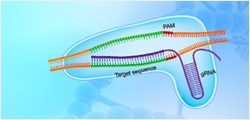| Species |
Human |
| Protein Construction |
| Poly-His |
S100A1 (Met1-Ser94)
Accession # P23297 |
| N-term |
C-term |
|
| Purity |
> 95% as analyzed by SDS-PAGE
> 95% as analyzed by HPLC |
| Endotoxin Level |
< 1 EU/μg of protein by gel clotting method |
| Expression System |
E. coli |
| Apparent Molecular Weight |
~11.5 kDa, on SDS-PAGE under reducing conditions. |
| Formulation |
Lyophilized after extensive dialysis against 20 mM Tris-HCl, 0.1 mM EDTA, pH 7.0. |
| Reconstitution |
It is recommended that this vial be briefly centrifuged prior to opening to bring the contents to the bottom. Reconstitute the lyophilized powder in ddH?O at 200 μg/ml. |
| Storage & Stability |
Upon receiving, this product remains stable for up to 6 months at lower than -70°C. Upon reconstitution, the product should be stable for up to 1 week at 4°C or up to 3 months at -20°C. For long term storage it is recommended that a carrier protein (example 0.1% BSA) be added. Avoid repeated freeze-thaw cycles. |
| Target Background |
S100 calcium-binding protein A1 (S100A1) is a small calcium binding protein with EF-hand structures and belongs to the S100 family. S100 proteins include at least 25 members which are located as a cluster on human chromosome 1q21. S100A1 is found in the heart, skeletal muscle, brain, and kidney.S100A1 mainly resides on the sarcoplasmic reticulum, mitochondria and myofilaments. S100A1 may function in stimulation of Ca2+ induced Ca2+ release, inhibition of microtubule assembly, and inhibition of protein kinase C-mediated phosphorylation. Reduced expression of this protein has been implicated in cardiomyopathies. |
| Synonyms |
Protein S100-A1; S100 calcium-binding protein A1; S-100 protein alpha subunit; S-100 protein alpha chain; S100A1; S100A; S100; S100-alpha; S100-A1 |
For laboratory research use only. Direct human use, including taking orally and injection and clinical use are forbidden.




































